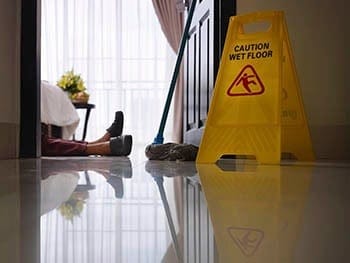Blog
May 27, 2016
In the case of sudden damage to your vehicle, whether it’s weather-related, a fallen tree branch, or a collision between two vehicles, you’ll first need to stay calm and assess the situation. You may be wondering just what to do after a car accident. Whether the damage is minor or more serious, you’ll want to know these do’s and don’ts before bringing a claim to your insurance company.
May 11, 2016
In June 2014, comedian Tracy Morgan made national headlines, not for the content of his comedy, but because his limo-van was impacted and nearly destroyed in an accident involving a tractor-trailer being driven for the big-box retail giant Walmart. Tracy Morgan’s good friend James McNair, a well-known comedian in his own right, was killed in the crash, and Mr. Morgan himself spent time in a coma in critical condition. Kevin Roper, the driver of the semi-truck that hit Mr. Morgan’s limosine van, was confirmed to have been working for 13 consecutive hours prior to the accident, and was only a half-hour shy of the federal daily limit when it occurred. Prosecutors have alleged that he had not slept for at least twenty-four hours straight in the time prior to the crash. One detail often left out of news articles about this tragedy is that, unfortunately, wrecks with tractor trailers are […]
May 5, 2016
South Carolina’s rate of uninsured drivers has been steadily improving since the early 2000’s. It can be comforting to look at an uninsured-motorist rate of only about 8% and think that most collisions that take place will involve liability insurance coverage on the at-fault vehicle. Unfortunately, while the rate of uninsured drivers is low, the rate of underinsured drivers remains shockingly high. What does this mean for you in case of an automobile accident, wreck involving a semi/tractor trailer, or motorcycle wreck? Let’s take a closer look and find out.
April 19, 2016
Whether the dog in question is your own pet, belongs to a friend or family member, or is a stray or feral animal loose in public, aggressive dog bites can cause serious physical injury and risk infection, the need for hospitalization, or even death in the worst of cases. What should you do in case of a dog bite? We have some important steps to make sure you and your rights are covered.
April 13, 2016
Falling victim to medical malpractice is a tragedy piled upon a tragedy — we implicitly trust medical professionals to make the best decision and put the lives of ourselves and our loved ones in their hands. It’s hard to even think about anything going wrong in these situations, but we here at Bluestein Attorneys believe that the best time to learn the facts about medical malpractice isn’t after the tragedy has occurred, but before. If you or your loved one goes in for medical care aware of your rights, options, and needs in the event of serious medical misconduct resulting in injury or death, you’ll be better prepared to advocate for yourself, for family members, and to seek justice if anything should go wrong.
March 30, 2016
Ever experienced a situation where you or someone you know had to fight with your insurance company in order to receive the benefits owed after a car accident or medical claim? If so, you may have fallen prey to insurance bad faith. If you think your insurance company may be acting in bad faith, it’s important to really understand the scope of the issue. This will help you to understand what rights you have and what may be done to resolve it.
March 23, 2016
When we opened up this new blog, there were a few posts from our old blog that we made sure to hold onto — our series on PTSD and the VA and this post on the impact of the water contamination at Camp Lejeune. We hope you’ll take the time to read it again, in respect to the Marines and their families exposed to the sometimes fatal water contamination at Camp Lejeune.
March 16, 2016
Part I Part II Part III Part IV Part V Throughout our series on Workers’ Compensation, we’ve answered questions about the history of the WC program in South Carolina, the differences between total and partial disability, occupational diseases or health conditions not usually considered “injuries”, and how claims are filed and decisions may be made. In our final post in this series, we’re going to take a look at the one topic we haven’t yet touched — settlements. The two primary methods of settlement are a Form 16 or what is known as a “clincher agreement.”
March 9, 2016
Part I Part II Part III Part IV Part V In our series on Workers’ Compensation, we’ve answered many of the most common questions we hear. We’ve walked you through the basics of what WC is and when the program was created, the differences between partial and total disability, and even taken a look at occupational diseases and other health issues not normally thought of as “workplace-related injuries”. Today, we’ll be looking a little more in-depth into how a claim is filed, the 2007 changes to the Workers’ Compensation Act, and what it means to have a “change of condition.” First, though, let’s answer a quick question about the Second Injury Fund.








